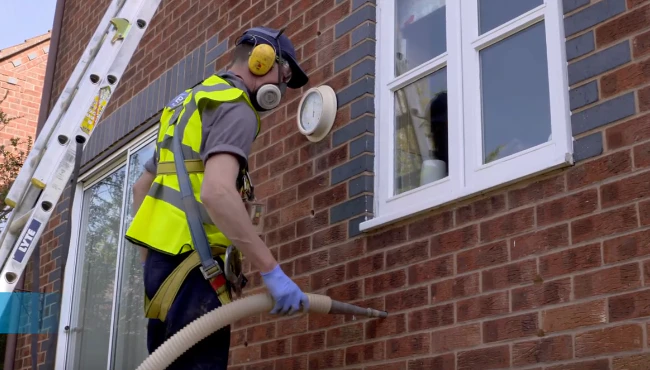What does a glazier do?
Essentially, a glazier is a skilled tradesperson who is responsible for cutting, installing and repairing glass in various structures. These include windows, doors, skylights and glass facades. Glaziers also work on projects involving mirrors, glass table tops and other glass elements. The job is closely related to that of a window fitter, who specializes in the installation of windows and doors. Daily tasks include measuring and cutting glass, installing frames, securing glass with putty, rubber gaskets or metal clips, and ensuring that the final product meets safety and energy efficiency standards.
Required skills
A glazier needs precision and attention to detail, as well as knowledge of how to use tools such as glass cutters, drills and saws. A solid understanding of measurements and dimensions is essential for accurate installations. Physical fitness and manual dexterity are important for handling heavy materials and complicated tasks. Problem-solving skills are crucial when it comes to making on-site adjustments to ensure proper fit and alignment, so a combination of technical expertise and adaptability is critical in this trade.

Qualifications
While there is no strict educational path, obtaining qualifications can significantly enhance a glazier’s career prospects. Achieving NVQ Level 2, NVQ Level 3 in Glazing or NVQ Level 2 in Fenestration Installation or NVQ Level 3 in Fenestration Installation is highly beneficial. Holding a blue CSCS card or gold CSCS card further validates a glazier’s competency and commitment to safety standards.
Benefits
The world of glazing offers numerous benefits. First and foremost, it is a hands-on profession that allows individuals to see the tangible results of their work. The demand for qualified glaziers is consistently high, which ensures job security. In addition, the possibility of self-employment is an attractive prospect for those who want to start their own business.
Challenges
Working with glass involves risks, which is why safety is a top priority. Weather conditions can affect outdoor installations, which adds an element of unpredictability. Deadlines and customer expectations can also be a challenge, requiring glaziers to manage time efficiently and deliver quality work under pressure.
Career path and progression
Glaziers often begin as apprentices, honing their skills under the guidance of experienced professionals. With experience, they can progress to supervisory roles or specialize in specific areas such as stained glass or energy-efficient window installations. Continuous learning and staying updated on industry trends can open doors to further advancement.
Statistics
Glaziers and Window Trades in the UK* – Prognosis
Average Annual Increase
ARR**
SOURCE: CITB ” Labour Market Intelligence Report (2024 – 2028)”.
* These prognosis calculations assume constant ARR and growth rate without significant external disruptions.
** ARR – Annual Recruitment Requirement is a metric used to estimate the number of new workers needed annually to meet labour market demands in a specific industry, region, or occupation.
How much could you earn as a glazier
Glaziers in the UK earn varying wages based on experience and employment status. Entry-level employed workers earn around £15 per hour (£25,500 annually), while experienced ones can earn up to £19.71 per hour (£41,006 annually). Self-employed individuals charge approximately £25 per hour, with daily earnings ranging from £180 to £240, depending on experience and location.
*Information sourced from reputable recruitment sites and agencies, reflecting the latest job market insights and trends. Figures can vary based on factors such as specific job requirements, individual qualifications, and regional economic conditions. Additionally, self-employed professionals should account for expenses such as tools, materials, insurance, and transportation when calculating their net earnings.
Typical hours per week
Standard work hours per week
(Employed)
Working hours per week with overtime
(Employed and Self-employed)
Glaziers usually work around 40 hours per week, Monday to Friday. However, some projects may require overtime or weekend work, especially when deadlines are involved. Flexible working hours are common in the construction industry.
Conclusion
Being a glazier in the UK offers a unique blend of craftsmanship, problem-solving, and job satisfaction, making it an excellent choice for those with a good eye for detail and a passion for working with glass. This career requires precision, technical skills, and the ability to work with various tools while ensuring safety. Glaziers enjoy a rewarding role in the construction and renovation sectors, offering the opportunity to create functional, aesthetic pieces, and contributing to architectural beauty in both commercial and residential spaces.

